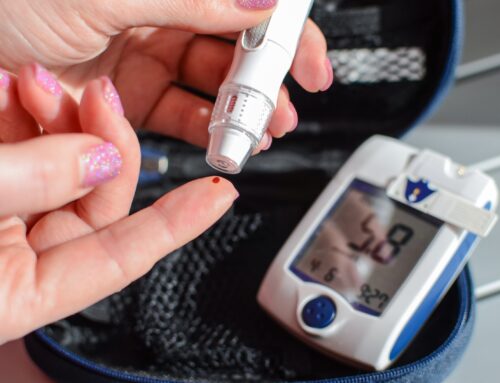Diabetes is a chronic disease that affects millions of people worldwide. It occurs when the body cannot produce or use insulin effectively, leading to high blood glucose levels. There are various treatment options for diabetes, including medications that help lower blood glucose levels. Tirzepatide is a new medication that has been developed for the treatment of type 2 diabetes. It is a dual glucose-dependent insulinotropic polypeptide (GIP) and glucagon-like peptide-1 (GLP-1) receptor agonist.
Tirzepatide works by mimicking the effects of GIP and GLP-1 in the body. These two hormones are responsible for regulating insulin and glucagon secretion in response to food intake. GLP-1 also slows down gastric emptying, reduces appetite, and promotes weight loss. Tirzepatide binds to GIP and GLP-1 receptors in the pancreas and promotes insulin secretion and suppresses glucagon secretion. This leads to lower blood glucose levels and improved glucose control.
In addition to its glucose-lowering effects, Tirzepatide also promotes weight loss. It does so by reducing appetite, slowing down gastric emptying, and increasing energy expenditure. This makes it an attractive option for patients who are overweight or obese and struggle to lose weight with traditional diabetes medications.
Tirzepatide Clinical Trials: Promising Results for Type 2 Diabetes Patients
Several clinical trials have been conducted to evaluate the safety and efficacy of Tirzepatide for the treatment of type 2 diabetes. The SURPASS program was a phase 3 clinical trial that evaluated Tirzepatide’s safety and efficacy compared to insulin glargine in patients with inadequately controlled type 2 diabetes. The trial involved over 4,000 patients from 21 countries and lasted for 52 weeks.
The results of the trial showed that Tirzepatide was superior to insulin glargine in reducing A1c levels and body weight. A1c levels are a measure of long-term glucose control, and lower levels indicate better glucose control. The trial also showed that Tirzepatide was generally well-tolerated, with most adverse events being mild to moderate in severity. The most common adverse events were gastrointestinal in nature, such as nausea and diarrhea.
Another clinical trial, the SURMOUNT-1 trial, evaluated the safety and efficacy of Tirzepatide in combination with insulin glargine in patients with inadequately controlled type 2 diabetes. The trial involved over 1,800 patients and lasted for 40 weeks. The results of the trial showed that Tirzepatide in combination with insulin glargine was superior to insulin glargine alone in reducing A1c levels and body weight.
Tirzepatide Weight Loss: Understanding Its Mechanism and Benefits
Tirzepatide is unique compared to other diabetes medications because it promotes weight loss. This is a significant benefit for patients with type 2 diabetes who are often overweight or obese. Tirzepatide’s weight loss mechanism is due to its ability to reduce appetite, slow down gastric emptying, and increase energy expenditure.
In clinical trials, Tirzepatide has been shown to cause significant weight loss compared to placebo and other diabetes medications. For example, in the SURPASS-4 trial, Tirzepatide was shown to cause an average weight loss of 12.4% compared to placebo, which caused an average weight loss of 2.4%.
Tirzepatide has also shown promise in treating patients with insulin resistance. In a phase 2 trial, patients with type 2 diabetes who had inadequate glucose control despite treatment with metformin and insulin were randomized to receive tirzepatide or placebo. Patients who received tirzepatide demonstrated a significant reduction in A1c levels and required less insulin than those who received a placebo.
Overall, the results of tirzepatide clinical trials have been promising, with the medication demonstrating significant improvements in glucose control, weight loss, and cardiovascular risk factors in type 2 diabetes patients. However, further research is needed to evaluate the long-term safety and efficacy of tirzepatide.
Tirzepatide Weight Loss: Understanding Its Mechanism and Benefits
Weight loss is an important aspect of managing type 2 diabetes, as excess body weight can contribute to insulin resistance and other cardiovascular risk factors. Tirzepatide has been shown to be an effective weight loss medication, with patients experiencing an average weight loss of 11.3% after 26 weeks of treatment in a phase 2 trial.
Tirzepatide’s weight loss mechanism is thought to be due to its dual agonism of the GLP-1 and GIP receptors. GLP-1 and GIP are hormones that stimulate insulin secretion and inhibit glucagon secretion, which helps to lower blood glucose levels. GLP-1 and GIP also promote satiety and reduce food intake, which can lead to weight loss.
In addition to its weight loss benefits, tirzepatide has been shown to have a positive impact on other cardiovascular risk factors. In a phase 3 trial, patients who received tirzepatide demonstrated significant reductions in blood pressure and cholesterol levels, which are important indicators of cardiovascular health.
It is important to note that weight loss medications should not be used as a substitute for a healthy lifestyle, including a balanced diet and regular exercise. Tirzepatide should be used in conjunction with lifestyle modifications to achieve the best results.
Conclusion
Tirzepatide is a promising new diabetes medication that has shown significant benefits in clinical trials. Its dual mechanism of action as a GLP-1 and glucagon receptor agonist, combined with its ability to promote weight loss, make it a unique and effective treatment option for type 2 diabetes patients. Its safety profile is comparable to other GLP-1 agonists, and its long-term effects are currently being studied.
However, like all medications, Tirzepatide comes with potential risks and side effects, and its use should be closely monitored by healthcare professionals. Patients with certain medical conditions, such as pancreatitis or a history of medullary thyroid carcinoma, should not take Tirzepatide.
In summary, Tirzepatide offers a promising new treatment option for type 2 diabetes patients, particularly those who struggle with weight management. With ongoing research and clinical trials, we will likely learn more about its benefits, risks, and long-term effects in the coming years.
References:
Frias JP, Nauck MA, Van J, et al. Efficacy and Safety of LY3298176, a Novel Dual GIP and GLP-1 Receptor Agonist, in Patients With Type 2 Diabetes: A Randomized, Placebo-Controlled, Dose-Ranging Study. Lancet. 2018;392(10160):2180-2193.
Buse JB, Henry RR, Han J, et al. Effects of exenatide (exendin-4) on glycemic control over 30 weeks in sulfonylurea-treated patients with type 2 diabetes. Diabetes Care. 2004;27(11):2628-2635.
Pratley RE, Amod A, Hoff ST, et al. Oral semaglutide versus subcutaneous liraglutide and placebo in type 2 diabetes (PIONEER 4): a randomised, double-blind, phase 3a trial. Lancet. 2019;394(10192):39-50.
Tirzepatide [package insert]. Indianapolis, IN: Eli and Company; 2021.
Ready to explore Tirzepatide as a potential diabetes treatment? Request a consultation with the Alpha Male Clinic today. Our experts will provide in-depth information on Tirzepatide’s mechanism of action, clinical trial results, dosage guidelines, weight loss benefits, and possible side effects. Compare Tirzepatide to other GLP-1 agonists and find out if it’s the optimal choice for your diabetes management. Take the first step towards better health by contacting the Alpha Male Clinic for a consultation now.
Tirzepatide is a dual-action medication that aids in weight loss and blood sugar control. It works by targeting the glucagon-like peptide-1 (GLP-1) and glucose-dependent insulinotropic polypeptide (GIP) receptors, promoting reduced appetite, improved glycemic management, and weight loss.
Tirzepatide is typically prescribed for adults with type 2 diabetes and weight-related health issues. However, it is essential to consult with a healthcare provider to determine if Tirzepatide is the right treatment option for you.
Tirzepatide is administered as a subcutaneous injection, usually once a week. Your healthcare provider will guide you on the proper injection technique and dosage.
It is crucial to discuss your current medications and medical history with your healthcare provider before starting Tirzepatide. Your provider will determine if Tirzepatide can be safely combined with other diabetes medications based on your specific situation.
The time it takes to see results with Tirzepatide can vary between individuals. Some people may notice weight loss and improved blood sugar control within a few weeks, while others may take a few months to achieve significant results.
Some common side effects of Tirzepatide include nausea, vomiting, diarrhea, and constipation. These side effects are usually mild and subside as your body adjusts to the medication. If you experience severe or persistent side effects, consult your healthcare provider.
The duration of Tirzepatide treatment depends on your individual needs, goals, and response to the medication. Your healthcare provider will monitor your progress and adjust your treatment plan as needed.
Tirzepatide is primarily prescribed for individuals with type 2 diabetes and weight-related health issues. However, it is important to consult your healthcare provider to determine if Tirzepatide is suitable for you, even if you do not have diabetes.
It is possible to regain weight after discontinuing Tirzepatide treatment. To maintain long-term weight loss results, it is essential to adopt a healthy lifestyle, including a balanced diet and regular physical activity. Consult your healthcare provider for guidance on maintaining your weight loss after completing your Tirzepatide treatment.
Insurance coverage for Tirzepatide varies depending on your provider and specific plan. It is essential to check with your insurance company to determine your coverage and any out-of-pocket expenses you may incur.




